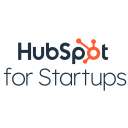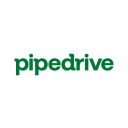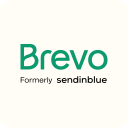HubSpot vs Customer.io: How to choose the best marketing automation tool
- 01HubSpot vs Customer.io: overview
- 02What's the difference between HubSpot and Customer.io?
- 03HubSpot pros and cons
- 04Customer.io pros and cons
- 05HubSpot compared to Customer.io
- 06Customer.io compared to HubSpot
- 07Features comparison
- 08HubSpot vs Customer.io: Which is the best for your business?
- 09Promotions on Content Marketing software
- 10Alternatives to HubSpot & Customer.io
Access up to $7,000 savings on HubSpot & $1,800 on Customer.io
HubSpot
75% off for 1 year
Access up to $7,000 savings on HubSpot & $1,800 on Customer.io
HubSpot
75% off for 1 year
Selecting the right marketing automation platform for your business enhances customer engagement and communication. By providing insights into customer behavior, segmentation, and campaign performance, these tools also aid in strategic decision-making. The good news? There are various tools on the market to assist with your marketing efforts. The bad news? It can be challenging to decide which one is best for your business.
That’s why we’ve prepared this in-depth comparison of two leading solutions—HubSpot vs Customer.io. This guide explores each platform’s key features and highlights their main differences to equip you with the information you need to decide on the best solution for your marketing automation needs. Whether you're looking for comprehensive CRM capabilities or targeted email automation, understanding these platforms will help you optimize your marketing strategies and achieve your business goals.
HubSpot vs Customer.io: overview
HubSpot and Customer.io are two prominent players in marketing automation software, each catering to distinct user requirements and marketing strategies.
HubSpot is renowned for its comprehensive suite of tools that integrates CRM, marketing, sales, and customer service functionalities. It excels in providing an all-in-one platform that facilitates lead management, email marketing, and analytics with ease. HubSpot is an ideal choice for businesses that value a holistic approach to inbound marketing and seek to streamline their marketing, sales, and customer service operations. On the other hand, Customer.io is celebrated for its targeted email automation and personalized messaging capabilities. It is particularly well-suited for businesses that require advanced segmentation, real-time behavioral data, and the ability to create highly customized customer journeys.
Now, let's dive into the HubSpot vs. Customer.io comparison to help you make an informed decision when selecting the right marketing automation software for your specific needs.
What's the difference between HubSpot and Customer.io?
When comparing HubSpot and Customer.io, it's crucial to understand their key differences to make an informed choice for your business. The main point of distinction between the two platforms is their focus and range of features.
HubSpot is an all-in-one marketing, sales, and service platform designed to provide comprehensive solutions for businesses seeking to streamline their operations. It offers an integrated CRM system, making it easy to manage contacts, track interactions, and automate workflows across multiple departments. HubSpot excels in inbound marketing, offering tools for content creation, SEO optimization, social media management, and detailed analytics. This makes it ideal for businesses looking for a holistic approach to manage their customer interactions and marketing efforts across various channels.
In contrast, Customer.io specializes in email marketing automation and personalized messaging. It is particularly well-suited for businesses that want to engage customers through targeted email campaigns based on real-time behavioral data. Customer.io provides advanced segmentation and dynamic content options, allowing businesses to create highly customized and triggered messages that resonate with their audience. This focus on personalization and real-time interactions makes Customer.io an excellent choice for companies aiming to enhance customer engagement through email and push notifications.
While HubSpot offers a broad array of tools for marketing, sales, and service, Customer.io is more focused on enhancing customer communication through personalized emails and messages. HubSpot’s free plan provides access to its CRM and limited marketing tools, supporting up to 1,000,000 contacts, which is ideal for small to medium-sized businesses looking to manage customer relationships comprehensively. On the other hand, Customer.io's pricing is based on the number of profiles and messages, allowing businesses to scale their communication efforts as needed.
In summary, HubSpot is best for businesses seeking an integrated platform for managing marketing, sales, and customer service, while Customer.io is ideal for those focusing on personalized email marketing and customer engagement.
HubSpot pros and cons
What are the advantages of HubSpot?
- Comprehensive platform: HubSpot offers a wide range of tools under one platform, including CRM, marketing, sales, and customer service. This integration helps streamline workflows and ensures that all teams work cohesively.
- User-friendly interface: HubSpot is known for its intuitive and easy-to-navigate interface, which reduces the learning curve for new users.
- Powerful marketing automation: HubSpot provides robust automation tools for email marketing, social media management, and lead nurturing, helping businesses engage with customers effectively.
- Extensive educational resources: HubSpot offers a wealth of educational content through HubSpot Academy, including courses, certifications, and blogs.
- Scalable for growing businesses: HubSpot offers different pricing tiers and feature sets, allowing businesses to start small and scale up as they grow.
What are the disadvantages of HubSpot?
- Pricing structure: HubSpot can become expensive as businesses grow and require more advanced features or increased contact limits.
- Limited customization: While HubSpot offers many features, some users may find limitations in customizing certain aspects of the platform to fit unique business needs.
- Complexity of advanced features: While the basic features are user-friendly, the more advanced tools and integrations can be complex to set up and manage.
- Data migration and integration challenges: Migrating data to HubSpot from other platforms or integrating with certain third-party tools can sometimes be challenging.
- Limited A/B testing for lower plans: A/B testing features are restricted or not available in lower-tier plans, limiting the ability to optimize campaigns.
Compare HubSpot to other tools
Customer.io pros and cons
What are the advantages of Customer.io?
- Advanced segmentation and targeting: Customer.io allows for highly detailed audience segmentation based on user behavior, attributes, and events, enabling precise targeting.
- Real-time behavioral tracking: Customer.io offers real-time tracking of user interactions, allowing businesses to trigger messages based on specific actions instantly.
- Flexible workflow automation: The platform provides robust automation capabilities, allowing users to design complex workflows with branching logic and multiple triggers.
- Customizable messaging: Customer.io supports a wide range of messaging channels, including email, SMS, and push notifications, with extensive customization options.
- Developer-friendly features: Customer.io offers a robust API and webhooks, making it easy for developers to integrate the platform with other systems and customize its functionality.
What are the disadvantages of Customer.io?
- Complex setup for non-technical users: The platform’s advanced features and customization options can be challenging to set up and manage for users without technical expertise.
- Limited CRM features: Customer.io focuses primarily on messaging and automation, lacking comprehensive CRM functionalities found in all-in-one platforms like HubSpot.
- Pricing structure: Pricing is based on the number of profiles and messages sent, which can become expensive for businesses with large contact lists or high-volume messaging needs.
- Steep learning curve: The platform’s advanced features and workflow capabilities require a learning curve, especially for users new to marketing automation.
- Basic reporting and analytics: While Customer.io provides essential analytics, it lacks the in-depth reporting and visualization tools found in some other marketing platforms.
Compare Customer.io to other tools
HubSpot compared to Customer.io
HubSpot and Customer.io serve different needs in the marketing automation space. HubSpot is an all-in-one platform offering a comprehensive suite of tools for CRM, marketing, sales, and customer service, making it ideal for businesses seeking an integrated approach to managing customer relationships. Its user-friendly interface and extensive educational resources support a wide range of marketing strategies.
In contrast, Customer.io specializes in personalized messaging and email automation, focusing on real-time behavioral data and advanced segmentation. This makes it a strong choice for businesses aiming to enhance customer engagement through targeted and dynamic communication.
Is HubSpot better than Customer.io?
Determining whether HubSpot is better than Customer.io depends on a business’s specific needs and goals. HubSpot excels as an all-in-one solution, integrating CRM, sales, and marketing tools to provide a comprehensive platform for businesses looking for broad functionality across departments.
It is particularly beneficial for organizations that need a cohesive system to manage every aspect of customer interaction from lead generation to customer support. Conversely, Customer.io focuses on personalized messaging and automation, making it ideal for companies that prioritize tailored communication and advanced targeting.
What is HubSpot best used for?
HubSpot is best used for inbound marketing, sales, and customer service management, offering a comprehensive suite of tools designed to streamline business operations and enhance customer engagement. It excels in providing a centralized platform for managing customer relationships, with features that include CRM, email marketing, social media management, content creation, and analytics.
HubSpot is particularly effective for businesses looking to attract, engage, and delight customers through personalized and automated marketing strategies. Its user-friendly interface and extensive resources, such as HubSpot Academy, make it accessible for teams aiming to implement cohesive marketing campaigns and improve their overall customer experience.
Can HubSpot replace Customer.io?
While HubSpot and Customer.io both offer marketing automation features, they cater to different needs, making HubSpot a potential replacement for Customer.io in some scenarios but not all. HubSpot provides a comprehensive platform with tools for CRM, marketing, sales, and customer service, offering a broader scope than Customer.io. It excels in managing customer interactions across various channels and is suitable for businesses seeking an integrated approach.
However, Customer.io specializes in personalized email and messaging automation, focusing on advanced segmentation and real-time behavioral data. For businesses prioritizing deep personalization and messaging precision, Customer.io might still be preferable over HubSpot.
Is HubSpot cheaper than Customer.io?
Determining whether HubSpot’s pricing is cheaper than Customer.io’s depends on the specific features and scale of usage required by a business. HubSpot offers a wide range of pricing plans, starting from free tiers with basic CRM features to more expensive packages that include comprehensive marketing, sales, and customer service tools. These can become costly as additional features and contacts are added.
In contrast, Customer.io pricing is primarily based on the number of profiles and messages sent, which can be cost-effective for smaller lists but expensive for high-volume messaging.
Is there a better Content Marketing software than HubSpot?
Determining if there's a superior software to HubSpot depends on your specific marketing, sales, and customer service needs.
Several alternatives cater to diverse business requirements. Alternatives to HubSpot include Salesforce, Marketo, Zoho CRM, and ActiveCampaign, each offering unique features and strengths. For example, Salesforce is renowned for its robust CRM capabilities and extensive customization options, while Marketo excels in advanced marketing automation and lead management. Zoho CRM offers a highly customizable and cost-effective solution, and ActiveCampaign is known for its powerful email marketing automation and customer experience tools.
75% off for 1 year on HubSpot
Get 75% off for 1 year on HubSpot and up to $7,000 savings with Secret.
Customer.io compared to HubSpot
Customer.io and HubSpot are both prominent marketing automation platforms, but they cater to different needs. Customer.io specializes in personalized messaging and email automation, focusing on real-time behavioral data and advanced segmentation to deliver highly targeted campaigns. It is ideal for businesses looking to enhance customer engagement through dynamic and personalized communication.
In contrast, HubSpot offers a comprehensive suite of tools, including CRM, marketing, sales, and customer service, providing an all-in-one solution for managing customer interactions across various channels. HubSpot is suitable for businesses seeking an integrated approach to marketing and sales.
Is Customer.io better than HubSpot?
Whether Customer.io is better than HubSpot depends on the specific needs of your business. Customer.io is superior for companies that require advanced segmentation and personalization capabilities, focusing on creating tailored customer journeys through real-time data and dynamic messaging. Its strength lies in the ability to engage users with highly targeted campaigns, making it an excellent choice for businesses that prioritize personalized communication.
However, if a business requires a more comprehensive platform that integrates CRM, marketing, sales, and customer service, HubSpot may be the better option.
What is Customer.io best used for?
Customer.io is best used for creating personalized and automated messaging campaigns that enhance customer engagement. It excels in sending targeted emails, SMS, and push notifications based on real-time behavioral data and advanced audience segmentation. This platform is particularly valuable for businesses that want to deliver tailored messages to specific customer segments, triggering communications based on user actions, attributes, and events.
Customer.io's robust workflow automation capabilities allow marketers to design complex customer journeys and nurture leads effectively. This makes it an ideal choice for companies aiming to improve customer retention and drive conversions through highly personalized and timely communications.
Can Customer.io replace HubSpot?
Whether Customer.io can replace HubSpot depends on a business's specific needs and priorities. Customer.io specializes in personalized messaging and email automation, focusing on real-time data to deliver targeted campaigns. It is ideal for businesses seeking to enhance engagement through customized communication.
However, HubSpot offers a comprehensive suite that includes CRM, marketing, sales, and customer service tools, providing an integrated solution for managing customer interactions across various channels. If a business primarily needs advanced messaging capabilities, Customer.io might suffice. However, for those requiring a broader range of functionalities for managing marketing and sales processes, HubSpot's all-in-one approach may be more suitable.
Is Customer.io cheaper than HubSpot?
Whether Customer.io is cheaper than HubSpot depends on the specific features and scale of usage required by a business. Customer.io's pricing is primarily based on the number of profiles and messages sent, which can be cost-effective for businesses with smaller contact lists and moderate messaging needs.
In contrast, HubSpot offers a wide range of pricing plans, starting with free basic CRM features and escalating to more expensive packages that include advanced marketing, sales, and customer service tools. While HubSpot's comprehensive features may justify its higher costs, businesses focused solely on personalized messaging might find Customer.io a more affordable option.
Is there a better Email Marketing software than Customer.io?
Determining whether there's a better software than Customer.io depends on your specific marketing automation needs and goals.
Various alternatives cater to diverse business requirements. Alternatives to Customer.io include HubSpot, Mailchimp, Freshworks, and Klaviyo, each offering unique strengths. For instance, HubSpot provides a comprehensive suite of marketing, sales, and service tools for an all-in-one approach, while Mailchimp is well-known for its ease of use and email marketing capabilities. Klaviyo specializes in e-commerce integrations. The choice of the optimal software depends on your specific needs, budget, and desired features.
12 months free for Startup Plan on Customer.io
Get 12 months free for Startup Plan on Customer.io and up to $1,800 savings with Secret.
Features comparison
Customer.io Surpasses HubSpot in Personalization Capabilities
Despite HubSpot's strong feature set, Customer.io shines brighter in terms of personalization capabilities. Customer.io allows businesses to customize messages with dynamic content, including the recipient's name, purchase history, location, and even real-time behavioral data. For example, a company can send a personalized email to a customer who abandoned their shopping cart, including a reminder and a discount code specific to the items left behind. This level of customization creates a more engaging and personalized experience for users, increasing conversion rates and customer satisfaction.
Meanwhile, HubSpot primarily focuses on email personalization, offering less flexibility in crafting deeply personalized customer journeys across multiple channels. Customer.io’s advanced segmentation and dynamic content capabilities make it the superior tool for businesses prioritizing targeted and personalized communications across email, SMS, and push notifications. This makes Customer.io particularly effective for e-commerce and subscription-based businesses aiming to build strong customer relationships through tailored messaging.
HubSpot and Customer.io Offer Exceptional Reporting and Analytics
In terms of reporting and analytics, both HubSpot and Customer.io shine equally, offering businesses comprehensive insights into their marketing performance. Each platform provides robust dashboards and reports with a high degree of customizability, allowing businesses to gain precise control over their data. For instance, HubSpot's analytics tools enable users to track metrics like email open rates, click-through rates, and conversion rates, along with detailed customer journey mapping, which helps marketers identify and refine successful strategies.
Similarly, Customer.io offers real-time analytics that tracks user interactions across different messaging channels, providing valuable insights into how audiences engage with emails, SMS, and push notifications. Whether you’re analyzing campaign performance, segment engagement, or user behavior, both tools equip businesses with the necessary data to make informed decisions and critical adjustments. This equal capability in reporting ensures that marketers can optimize campaigns, improve ROI, and better understand their customer interactions.
HubSpot Elevates Lead Scoring Beyond Customer.io with Predictive Analytics
HubSpot takes lead scoring to the next level with its predictive feature, which leverages machine learning to identify high-potential leads based on historical data and behavioral patterns. This advanced capability allows HubSpot to analyze vast amounts of data, such as website visits, email interactions, and social media engagements, to predict which leads are most likely to convert. For example, HubSpot can automatically assign higher scores to leads who frequently engage with content or show interest in specific products. This superior insight enables businesses to focus their sales and marketing efforts on the most promising leads, thereby increasing conversion rates and revenue.
In contrast, Customer.io offers more straightforward segmentation based on predefined criteria, which, while effective for targeted messaging, lacks the depth and predictive power of HubSpot's machine learning-driven approach. As a result, businesses using HubSpot can implement a more strategic and data-driven lead management process, maximizing their return on investment.
Customer.io Surpasses HubSpot in Advanced A/B Testing Capabilities
Despite HubSpot's robust capabilities, Customer.io stands out in its A/B testing abilities, offering a more comprehensive suite of tools for experimentation. Customer.io allows users to test various elements such as messaging, subject lines, and content across different channels, providing detailed insights into what resonates best with their audience. For example, businesses can run tests to determine whether a personalized subject line leads to higher open rates or if a specific call-to-action generates more conversions.
Customer.io's in-depth setup and analysis tools enable marketers to fine-tune their strategies based on real-time data, optimizing campaigns for maximum effectiveness. In contrast, HubSpot's A/B testing is more limited, focusing primarily on email subject lines, making Customer.io the better option for businesses seeking an advanced A/B testing tool. This feature allows marketers to make data-driven decisions that enhance engagement and drive better results, ultimately leading to more successful marketing efforts.
HubSpot Outshines Customer.io in User-Friendliness
While both software solutions offer intuitive user interfaces, the ease of use of HubSpot is often lauded over Customer.io. HubSpot's platform design champions simplicity, making it an accessible tool for businesses of any size. Whether you're a seasoned marketer or a novice entrepreneur, you'll appreciate HubSpot's straightforward dashboard and easy-to-navigate features, which include drag-and-drop email builders and a visually appealing marketing automation workflow editor.
For example, creating a marketing campaign in HubSpot is a seamless process, thanks to its integrated templates and guided setup. In contrast, Customer.io, while powerful, requires a more technical approach to set up and manage campaigns, making HubSpot a more user-friendly choice for those seeking a less complex solution. This accessibility ensures that users can quickly learn and implement marketing strategies without extensive training or technical expertise.
HubSpot Excels Over Customer.io in Sales Pipeline Management
While both tools offer features that help manage and automate customer interactions, HubSpot stands out when it comes to sales pipeline management. HubSpot's sales pipeline feature allows you to visualize your entire sales process, set different stages and milestones, and track the progress of deals through a customizable dashboard. For example, sales teams can easily create multiple pipelines for different products or services, each with specific deal stages like "Prospecting," "Negotiation," and "Closed-Won."
This provides a greater level of organization, tracking, and strategic management of sales opportunities compared to Customer.io, which primarily focuses on multichannel messaging and automation. HubSpot’s pipeline management empowers sales teams to prioritize tasks, forecast revenues, and make data-driven decisions, enhancing the overall efficiency of the sales process. This robust feature makes HubSpot particularly valuable for businesses seeking to optimize their sales strategies and improve team productivity.
HubSpot Leads Customer.io in Integration Versatility
Integration capabilities are essential for the smooth running of any business, enabling teams to streamline processes and centralize data. Both HubSpot and Customer.io offer options to seamlessly merge with various tools, but HubSpot outpaces Customer.io in terms of sheer volume and diversity of integration possibilities. HubSpot boasts over 1,000 integrations, including popular tools like Salesforce, Slack, and Shopify, which allows businesses to connect their CRM systems, marketing, sales, and service functions effortlessly. For example, integrating HubSpot with Shopify enables automatic synchronization of customer and order data, streamlining e-commerce operations.
In contrast, Customer.io focuses primarily on integrating with marketing tools like Segment and Zapier, providing fewer options for broader business needs. This extensive integration capability makes HubSpot a more versatile choice for businesses seeking comprehensive connectivity across their entire software ecosystem.
Subscribe to our newsletters.
No FOMO here. Stay up-to-date on all the latest deals and news with our monthly newsletter straight to your inbox like 126,000+ entrepreneurs (+ Get 10% off on on our Premium Membership!)
HubSpot vs Customer.io: Which is the best for your business?
HubSpot is the best tool for you if:
- You need an all-in-one platform that integrates CRM, marketing, sales, and customer service, allowing your team to manage all customer interactions and campaigns from a single, cohesive environment.
- You value user-friendly interfaces and comprehensive educational resources like HubSpot Academy, which provide extensive training materials, helping your team quickly adapt and maximize the platform's capabilities.
- You require robust lead scoring and predictive analytics to prioritize high-potential leads, optimizing your sales process and focusing efforts on prospects most likely to convert.
- You seek extensive integration options with other software tools, ensuring seamless connectivity across your existing tech stack for enhanced operational efficiency and data synchronization.
- You want a scalable solution that grows with your business, offering flexible pricing tiers and features that accommodate evolving needs without needing to switch platforms as you expand.
Customer.io is the best tool for you if:
- You prioritize advanced personalization capabilities for messaging, allowing you to tailor content based on real-time user behavior, purchase history, and other data for more targeted and engaging communications.
- You need robust A/B testing tools to experiment with different messaging strategies, enabling you to optimize your campaigns based on detailed insights into what resonates best with your audience.
- You are looking for a platform that specializes in multichannel communication, offering seamless integration for sending personalized messages via email, SMS, and push notifications to enhance customer engagement.
- You value a developer-friendly environment with robust API access, enabling custom integrations and workflow automation that aligns with your unique business processes and technical requirements.
- You aim to increase customer engagement through dynamic content and segmentation, allowing for personalized customer journeys that respond to individual user actions and preferences in real-time.
Alternatives to HubSpot & Customer.io
Promotions on Content Marketing software
Start saving on the best SaaS with Secret.
Secret has already helped tens of thousands of startups save millions on the best SaaS like HubSpot, Customer.io & many more. Join Secret now to buy software the smart way.


















